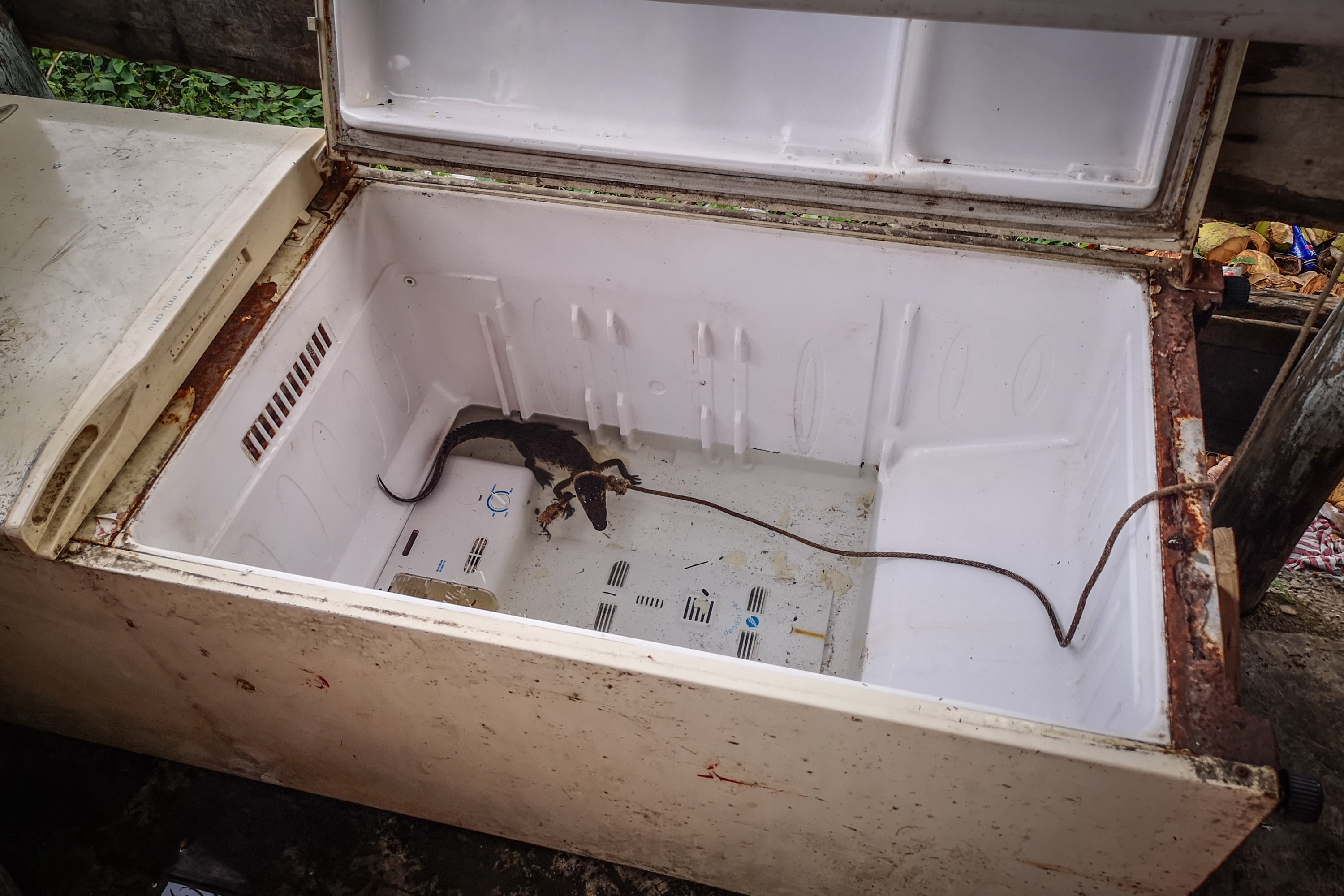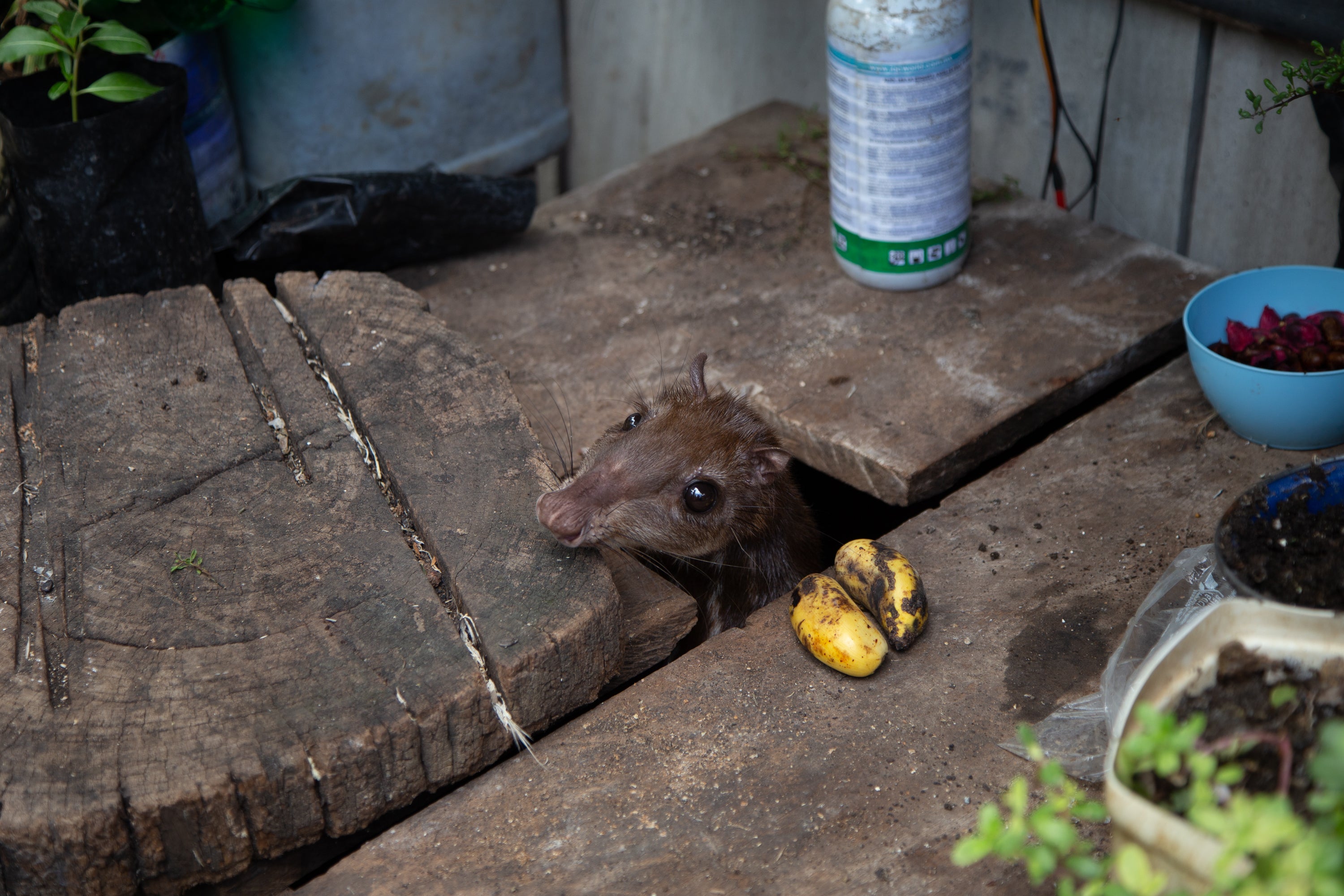Stop the Illegal Wildlife Trade: Mexico City’s roaring trade in animal trafficking
A growing crisis of biodiversity loss looms due to a sharp increase in the illegal trade of animals

Conservationists and wildlife protection agencies are blaming the economic fallout of the Covid pandemic on skyrocketing numbers of illegal wildlife trade cases in Mexico.
Between 2019 and 2020, there has been a reported 660 per cent increase in the number of animals seized by by Mexico’s environmental protection agency PROFEPA (The Federal Office for Environmental Protection).
In November a multi-agency raid of two properties in Mexico City’s district of Iztapalapa led to the seizure of more than 15,000 animals, two thirds of which held protected status. They included turtles, crocodiles, toucans, parrots and Gila monsters, all housed in overcrowded conditions as they awaited unknown onward journeys.
Mexico’s capital has long been regarded as a key hub for the illegal trafficking of wildlife, but such enormous seizures reflect a large increase in the trade since the outbreak of Covid-19.
The country’s border with the US - often in the headlines for stories about people smuggling - has now become a hot zone for wildlife smuggling.
Stop the Illegal Wildlife Trade
We are working with conservation charities Space for Giants and Freeland to protect wildlife at risk from poachers due to the conservation funding crisis caused by Covid-19. Help is desperately needed to support wildlife rangers, local communities and law enforcement personnel to prevent wildlife crime. Donate to help Stop the Illegal Wildlife Trade HERE
Local newspaper Excelsior recently reported that Mexico City was seeing both greater levels of wildlife trafficking through the city and retail of rare wildlife within the city.
Amid rising unemployment, experts believe some people may be turning to this kind of criminal activity to survive.
Fernando Contreras Moreno is a Field Officer for WWF Mexico. He tells The Independent that “low effectiveness of law enforcement, coupled with a high level of corruption, have led Mexico to become a hub for wildlife trafficking.

“Local police do not have adequate training to know when an activity is illegal or not [and] they have a high level of corruption, so when they detect something, the suspect could go free [thanks] to the famous ‘mordida’ [bribe] culture.”
Mexico is one of the world’s most biodiverse countries, home to an estimated 12 percent of the species on the planet.
Yet those populations are under increased threat, due to trafficking and habitat loss. According to the Living Planet Report, Latin America’s animal populations have fallen by 83% since the 1970s.
In Mexico, the most frequently trafficked animals include ornamental birds, mainly those of the Psittacidae family, monkeys, freshwater turtles and parts of jaguars, especially the fangs and skin.

Ernesto Zazueta is president of the Zoos, Breeders, and Aquariums association [Azcarm]. He said “In 2019, PROFEPA confiscated [about] 5,000 protected species, in 2020 the number was almost 33,000,” said Mr Zazueta, adding that a lack of funding is compounding the problem. PROFEPA’s 2020 budget was reportedly only 75% of what it was in 2018.
“The way I see it, trafficking has also increased because much of PROFEPA’s budget has been taken away. They have very few inspectors and can’t be searching for traffickers, and the traffickers know that.”
Zazueta cites the case of one man was caught carrying several boxes containing exotic animals - including African pygmy hedgehogs and chinchillas - in broad daylight at a subway station in Mexico City.
PROFEPA stated in September that it was searching for a woman seen walking a Bengal tiger cub through a bustling shopping centre in the capital.
Molly Ferrill is a filmmaker and correspondent dedicated to documenting the changing relationship between people and nature who lives in Mexico. “I know that owning exotic pets is increasingly popular in Mexico,” says Molly.
“In terms of food, I have seen sea turtle eggs for sale in traditional markets by the coast in Juchitán; they’re popular despite the turtles’ endangered status.
“At San Juan market in Mexico City you can buy exotic meats, including tiger and lion meat.”
Sales of such meats are legal if sourced from a licensed farm and are required to come with certificates of origin, but vendors do not display any and there is thought to be no expectation of enforcement.
Mr Zazueta is working to get legislation passed to increase penalties for wildlife crimes, a mission shared by Freeland, one of The Independent’s partner charities on our Stop The Illegal Wildlife Trade campaign.
Officially, the penalties for wildlife trafficking in Mexico are “severe”, according to Contreras Moreno. “However, there are many nuances to this issue. There are crimes that go up to 15 years in prison but I have not seen any case that has reached that penalty. In reality, it is always treated as a misdemeanour, and the judges always offer bail to the accused.”
Join our commenting forum
Join thought-provoking conversations, follow other Independent readers and see their replies
Comments
Bookmark popover
Removed from bookmarks